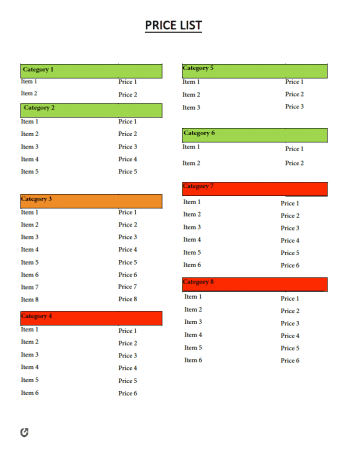
A price list informs clients of a company’s product and service prices. It allows buyers to reference prices, compare costs, and decide on purchases. Hair salons, restaurants, and online retail stores often use the lists to show customers their pricing model. However, any business can take advantage of a price list. In some cases, the company includes wholesale or unit prices, mainly if they send the list to another firm or corporation.
Businesses create the price list in digital or physical formats, making them easily accessible to prospective customers. When creating a price list template, the company must break it down into smaller sections for the client. For example, pricing scales may operate by package rather than individual products. In this case, the business must state the package name, the products or services it includes, and its cost.

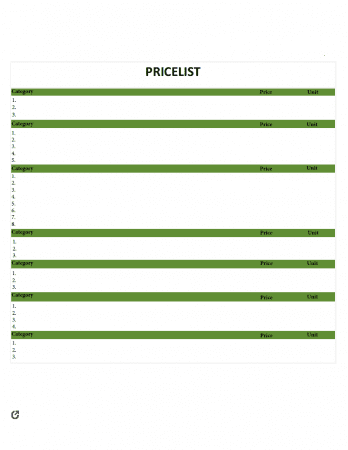
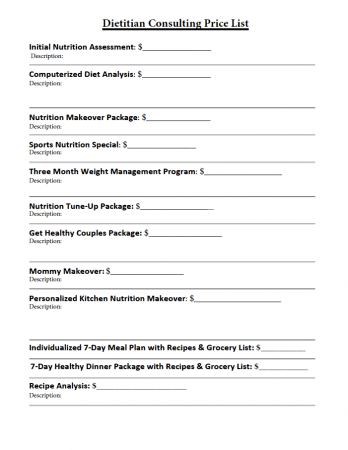
Price list templates vary based on a company’s unique needs. The essential factor in a price list is readability. The easier it is to understand, the more likely clients will use a company’s products and services.
Choose a template that fits the business. A price list for a massage studio may have a tranquil and simple design. In contrast, a price list for a children’s arcade center may incorporate images and colorful graphics.
Before committing to specific prices for each product or service, check competitor rates and determine the business’ current expenses. Consider what markup, if any, is necessary to make profits.
Next, organize the price list so that customers can quickly and effectively read it. Businesses can arrange their price list by the product sold, such as a restaurant menu. Like nail salons and other beauty services, others may organize the information by price (i.e., lowest-priced services appear first).
Confirm all prices listed are accurate, and the list is free of misspellings, mistakes, or inconsistencies. Having another person review the price list can help ensure it is error-free.
Print the price list and post it in a place where clients or customers can easily read it. The price list may be a large sign hanging on a wall, put into brochures on a countertop, or handed directly to customers.
If a company has an online presence, upload a digital version of the price list to the business’ website and social media.
It depends. On average, businesses update their price list every six to nine months to provide competitive yet fair pricing to customers. However, companies can change their rates as often as every three months or as seldom as once per year.
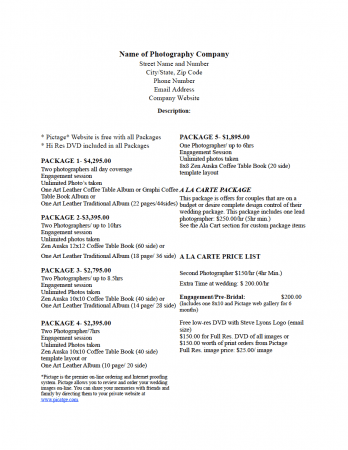
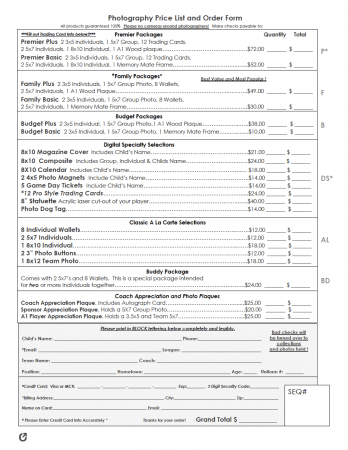
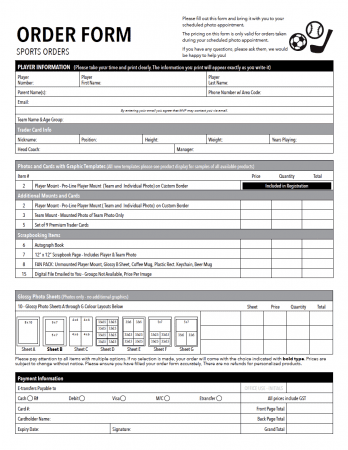
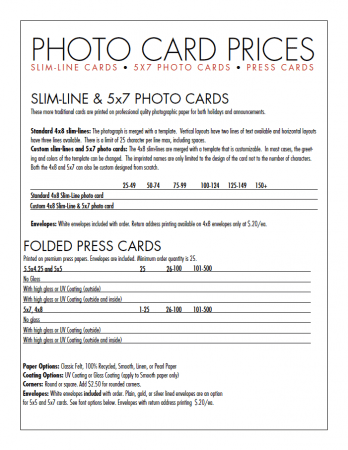
Each company or business has a price list template that works best for their individual needs. The following list has examples of various types.
Car detailers, commercial cleaning services, office and house cleaners, and general ‘handyman’ businesses use price lists to capture their services at-a-glance. This price list type often structures the prices based on packages or tiers. For example, a car washing service may offer three levels of pricing: Level One for basic wash, Level Two for basic wash plus interior vacuuming, and Level Three for all of the previous with additional deep clean and detailing.
Price lists for nail salons, hair and esthetician services, spas, and makeup artists enable clients to quickly choose which service they want. Often organized by type of service, these price lists concisely communicate the costs for each service.
Businesses offering dog grooming, pet sitting, doggy daycare, or other pet services use price lists to attract customers and convey their prices. These lists often organize prices based on time (i.e., 30-minute grooming sessions or half-day doggy daycare).
Daycares, birthday party venues, fun centers, and other businesses for kids create price lists centered on packages and deals. Parents often want to maximize value and minimize cost; a price list showing this will likely help gain customers.
A wholesale or supplier price list may include additional information because these price lists are more detailed than others. For example, volume-based discounts, minimum order requirements, and other tiered pricing help retailers choose the products the supplier offers.
A price list for food and beverage businesses helps customers make informed decisions. Certain companies format their price list by a la carte items, meal courses, or prices. They can be printed out and placed on counters or tables. Others may make large signage or use the digital version on websites for online ordering and marketing promotions.
Businesses that host events, such as weddings, company parties, funerals, conferences, trade shows, or fundraisers, use a price list to showcase the variety of options, vendors, and packages. For example, a wedding price list may offer add-ons, such as bridal suite photography or professional transportation.
Businesses offering products, such as professional portraits, graphic design, or decorated cakes, often detail their prices based on quantity. They may also incorporate flat rates into their prices or include fees based on time (such as hours spent photographing and editing).